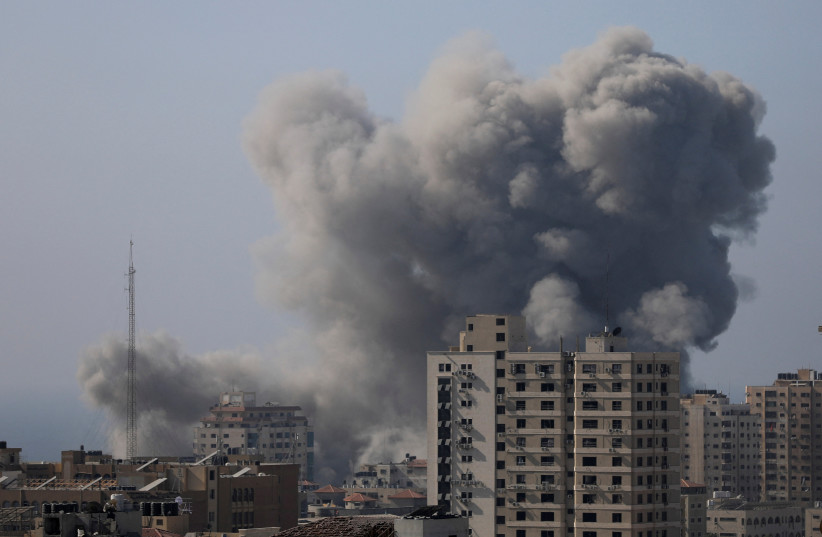The Gaza war has transformed the nationalistic Israeli-Palestinian conflict into a battle of religions and civilizations, European Union foreign policy chief Josep Borrell told a conference of ambassadors in Brussels on Monday.
While he’d previously viewed the issue as a nationalistic problem of two people, both of whom have a right to exist, Borrell explained that events of the last month have made the situation much more complicated and volatile.
“The Israeli-Palestinian conflict is no longer an Israeli-Arab [one] but a religious and civilization fight,” he said, in a wide-ranging speech about the war that began on October 7, its aftermath, and the forces that led up to it.
“The unfolding tragedy in the Middle East is the outcome of a collective political and moral failure” to resolve the conflict between the two nationalities for which “the Israeli and Palestinian people are paying a high price,” Borrell said.
How the Israeli-Palestinian conflict got worse
For decades, he said, the international community committed to a two-state resolution but without providing a credible road map on how to achieve it, he explained. Instead, the forces of denial in both camps grew.

“In Israel, the colonialization of the West Bank has been progressing with impunity and violence against Palestinians and this has become more brutal since October 7” when the Gaza war started, he said.
In Palestinian society, Borrell said, moderate forces have fallen prey to extremists.
There had been a belief, until October 7, that regional normalization between Israel and the Arab nations, such as concluded under the Abraham Accords, would lead in the end to peace with the Palestinians.
The “barbarism” of the Hamas attack against Israel on October 7, which was “un-excusable,” destroyed the credibility of that idea and underscored the importance of resolving the Israeli-Palestinian conflict, Borrell said.
His comment referenced the October 7 attack, in which Hamas infiltrated southern Israel killing 1,400 people and taking over 240 people hostage.
Borrell has been among those international diplomats who have called for a ceasefire in Gaza, or at the very least a humanitarian pause, warning about the high civilian cost of Israel’s military operation to oust Hamas.
“Ignoring the human cost” here, can ultimately “backfire,” he said.
“The overreaction of Israelis makes them lose the support of the international community,” Borrell said.
“Overreactions are always understandable but never acceptable,” he stressed.
Europe, he said, “has a moral and political obligation to be involved, not only by providing aid but by contributing to a durable solution.” The EU’s capacity “to contribute to a political solution will be a major test” of its credibility, he added.
But the priority has to be to end the violence in Gaza, he said, as Hamas asserted that close to 10,000 Palestinians in the enclave have been killed in violence related to that war.
“This is not going to be easy, because the humanitarian tragedy in Gaza is unprecedented,” he said, noting that Israel’s friends are asking it “not to be blinded by rage” and to conduct its military campaign based on international law.
There is no military solution to the conflict, so the war has to lead to peace, Borrell stressed. “No one can win a battle against terror, we have to look for political solutions,” he added.
